INTRODUCTION
The Vietnamese family is a central institution in Vietnamese society, deeply rooted in ancestral values while constantly evolving to adapt to the changes of the modern world. Understanding the Vietnamese family means delving into a rich heritage, exploring ancestral values, and discovering a dynamic that is constantly evolving. This article invites you to explore this fascinating institution.
FOUNDATIONS AND HISTORY: PATRIARCHY AND ANCESTOR RESPECT
Historical Influences
Throughout its history, Vietnam has been marked by many upheavals, such as wars and colonizations, which have had an impact on family structure and values. However, the family has always remained a refuge and a pillar of support for the Vietnamese.
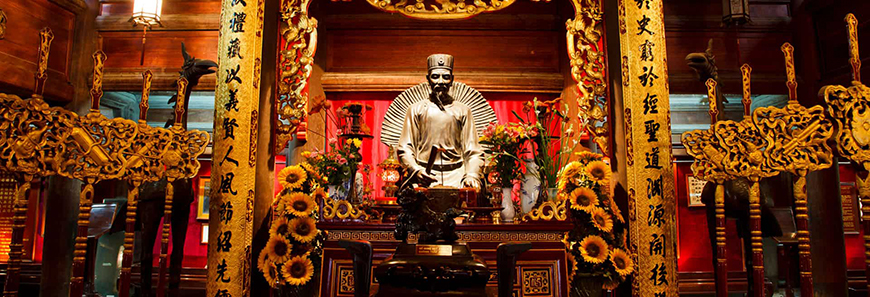
The Vietnamese family is based on Confucianism - Source : LonelyPlante
Confucian Roots
To understand the Vietnamese family, it is essential to go back to its Confucian roots. Confucianism, an ethical and social philosophy originating in China, has deeply influenced Vietnamese culture for centuries. At the heart of this philosophy is respect for elders and the importance of family hierarchy. Confucius' teachings emphasize five cardinal relationships: ruler-subject, father-son, husband-wife, elder brother-younger brother, and friend-friend.
.jpg)
Ancestor worship remain a common practice in Vietnamese families - Source : Internet
Values and Symbolism: Respect, Harmony, and Filial Piety
Among these relationships, the father-son relationship is paramount, reflecting the importance of filial piety (hiếu thảo), which advocates respect, obedience, and care for parents and ancestors. This vertical family structure has helped maintain the cohesion and stability of the family unit for generations.
Core Values
The Vietnamese family is characterized by a number of core values inherited from Confucianism, including:
- ♦ Respect for elders: Elders are considered sources of wisdom and experience, and it is important to show them respect and obedience.
- ♦ Filial piety: Children have a duty to care for their elderly parents and honor them after their death.
- ♦ Family harmony: Maintaining family harmony is paramount, and conflicts should be avoided as much as possible.
- ♦ Collectivism: The needs of the group take precedence over individual needs, and family members should support each other.
- ♦ Education: Education is considered essential for the success of children, and parents do everything they can to provide them with the best possible education.
Family Structure
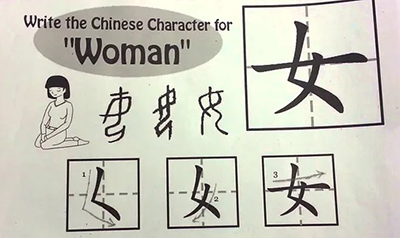
The Vietnamese family is based on patriarchal foundations, inherited from the 15th-century Hong Duc code. This code defined the laws and customs governing family life, placing the man at the head of the family and emphasizing the importance of ancestor respect. Women played an important role in household management and child rearing, although their status was often lower than that of men.
Did you know that ? Even the pictographic character of the word “Women/woman” -, shows the image of a woman in a kneeling position, meaning women are supposed to be obedient, subservient, and docile.
Extended Family
It was customary for several generations to live under the same roof, fostering a sense of solidarity and sharing. Grandparents played a crucial role in transmitting values and knowledge to younger generations. The eldest son was often designated to care for elderly parents, thus ensuring the continuity of the family line.
THE VIETNAMESE FAMILY TODAY: EVOLUTION AND TRANSFORMATIONS
Modernization and Changes
The contemporary Vietnamese family remains deeply marked by these traditional values, although it has evolved to adapt to modern realities. Today, it is often a unique blend of ancient traditions and modern practices. Modern Vietnamese society is undergoing profound transformations, inevitably impacting family structure and dynamics.
Urbanization and Rural Exodus
Rural exodus, growing urbanization, and the country's economic openness have modified traditional lifestyles. Today, the influence of traditions is gradually fading in favor of new family dynamics, more open and modern. Certainly, filial respect and intergenerational solidarity remain important, but gender relations are becoming more balanced. The younger generations aspire to more autonomy.
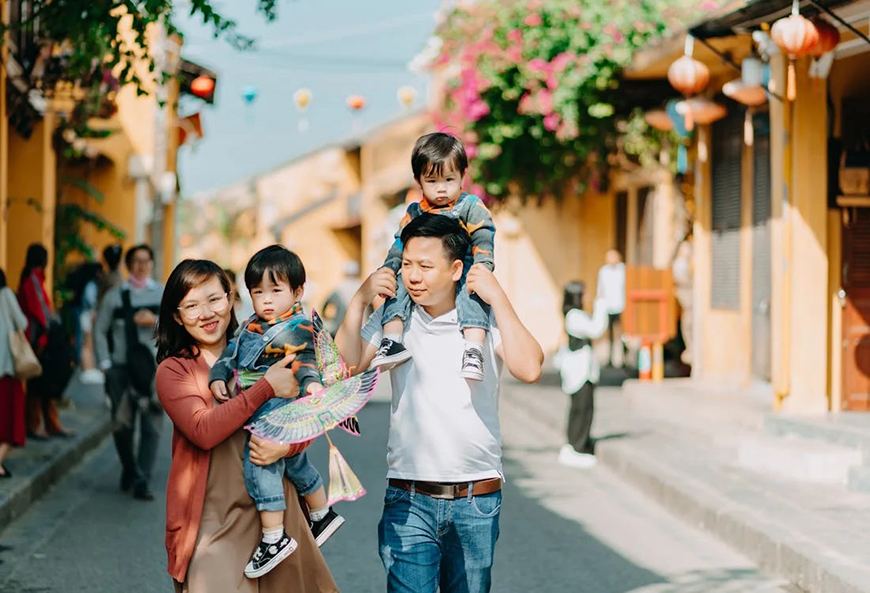
A modern Vietnamese family in Hoi An - Source : Pexel
Evolving Family Dynamics
Modernization and New Dynamics
Today, the influence of traditions is gradually fading in favor of new family dynamics, more open and modern. While filial respect and intergenerational solidarity remain crucial, gender relations are becoming increasingly balanced. Younger generations aspire to greater autonomy and demand openness to the outside world. In large cities, nuclear families composed of parents and children are becoming more common, sometimes abandoning the traditional extended family model. With increasing urbanization, many young people leave their home regions, thus stretching rural family ties.
Persistent Family Values
Despite these changes, family values remain deeply rooted in Vietnamese society. Respect for elders, mutual aid, and a sense of collective spirit remain pillars of family culture.
The Evolving Role of Women
The role of women in the Vietnamese family has also evolved. Traditionally responsible for household chores and child rearing, women are today increasingly participating actively in the country's economic life. They often combine careers with family responsibilities, demonstrating their resilience and adaptability. This double burden, although sometimes a source of stress, illustrates the transformation of gender roles within modern Vietnamese families.
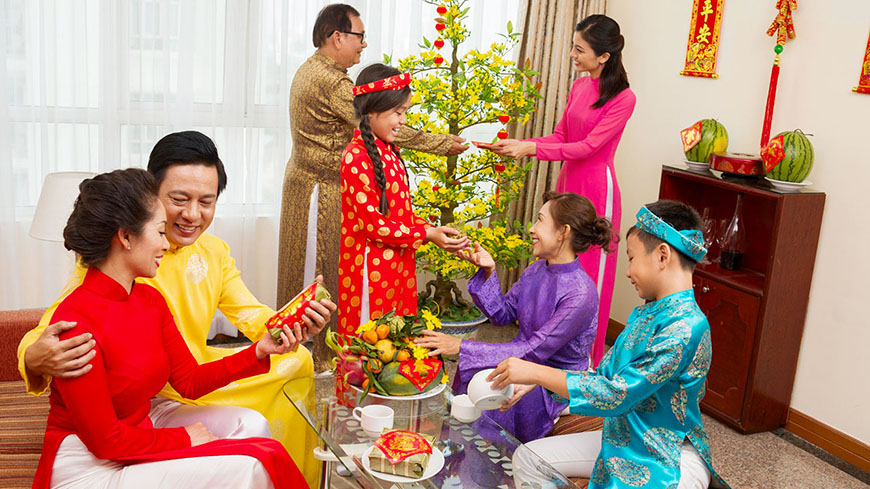
A Vietnamese family celebrating Tet - Source : Internet
Family Ceremonies and Rituals
Ancestor Worship
Ancestral ceremonies, such as ancestor worship, remain a common practice in Vietnamese families. These ceremonies involve honoring deceased ancestors and expressing gratitude for their contributions to the family lineage. They also serve to strengthen the sense of family identity and continuity.
THE VIETNAMESE FAMILY OF THE FUTURE
Globalization's Influence
Globalization is bringing new ideas and lifestyles to Vietnam, and younger generations are exposed to diverse cultures through media and the internet. This exposure is leading to more liberal attitudes towards marriage, parenting, and gender roles. This openness may lead to a redefinition of traditional family values.
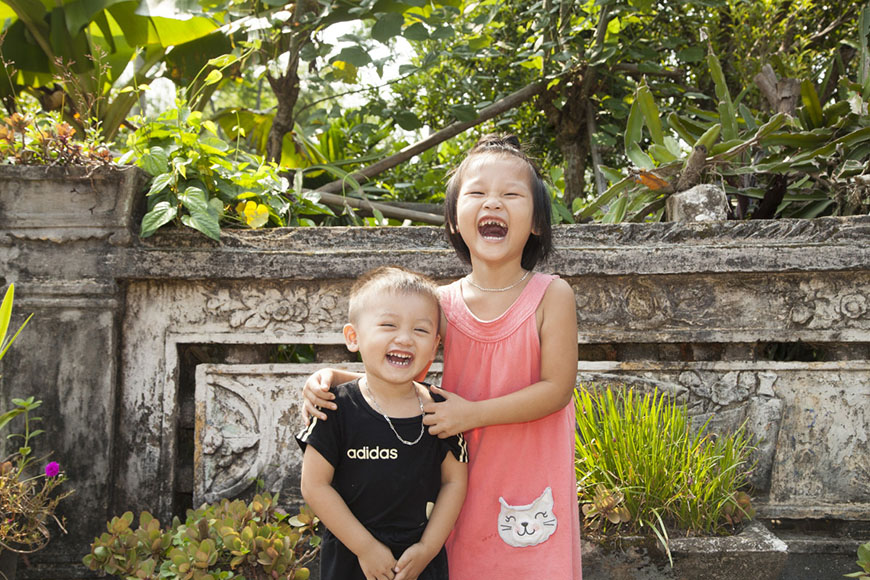
Kids are our future ! - Source : PxHere
Technology and Communication
Communication technologies, such as social media and messaging apps, are playing a crucial role in maintaining family ties, especially for families separated by distance. Video calls and instant messages allow family members to stay connected even when they live thousands of miles apart.
Challenges and Opportunities
The future of the Vietnamese family will also be shaped by challenges such as population aging and economic pressures. However, these challenges also present opportunities to rethink and strengthen family and community support structures. Public policies and social initiatives will play a key role in this adaptation.
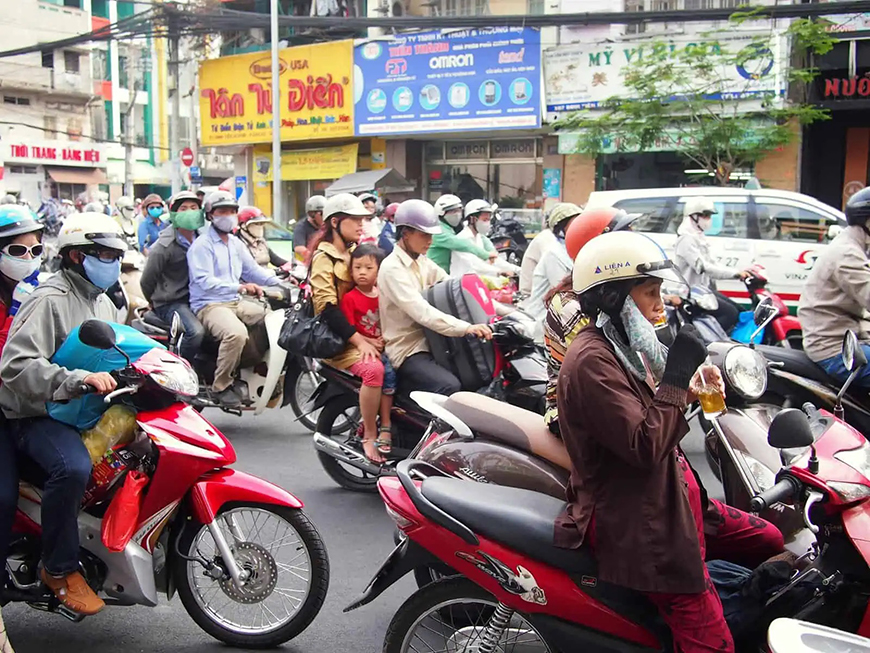
Saigon, family on motorbike - Source : Internet
CONCLUSION
The Vietnamese family is navigating between ancestral heritage and contemporary influences. Its subtle balance between traditions and openness to modernity will shape its future face. In conclusion, the Vietnamese family is a dynamic and complex entity, shaped by a rich history and deeply rooted values. In the face of societal and economic changes, this pillar of Vietnamese society must reinvent itself while preserving its essence. The Vietnamese family of the future will undoubtedly be diverse and multifaceted, but it will always carry within it the values of respect, harmony, and filial piety that have transcended generations.
Family in Vietnam... Vietnam with family... Have a look to some of our family tours :